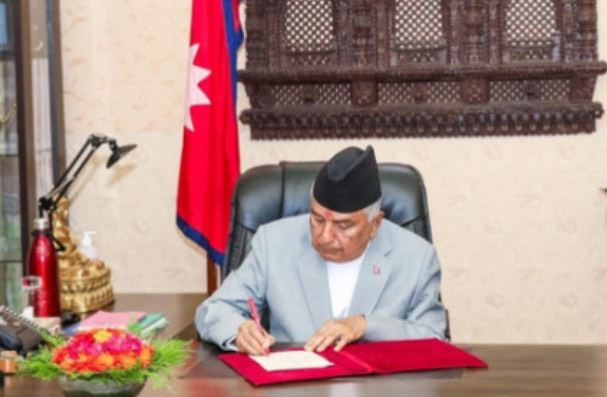The 18th edition of the joint military exercise ‘Suryakiran’ between Nepal and India is set to commence on Tuesday in Saljhandi, Rupandehi, Lumbini Province.
This battalion-level exercise aims to bolster security cooperation and deepen bilateral ties. The two-week-long training will involve the Nepali Army’s Sri Jung Battalion and the Indian Army’s 11th Gorkha Rifles.
It focuses on enhancing operational expertise in jungle warfare, counterterrorism in challenging terrains, peacekeeping missions under the UN Charter, humanitarian disaster management, and environmental protection.
Since the first joint exercise in 2010, the collaboration has played a vital role in fostering trust, cultural exchanges, and professional camaraderie. To date, 4,215 Nepali Army personnel and 4,442 Indian counterparts have participated. The 17th edition was held in Pithoragarh, India, last year.
In parallel, Nepal has initiated reforms in its cooperative sector to ensure depositor rights and promote financial accountability.
President Ramchandra Paudel issued the Cooperatives Ordinance on Sunday under Article 114 (1) of the constitution, following the Council of Ministers’ recommendation.
The new provisions require depositors to disclose the source of funds for deposits exceeding one million rupees in cooperatives. It also limits individuals to being members of only one cooperative of the same type. Those currently holding memberships in multiple cooperatives must consolidate their memberships into a single organization.
The ordinance categorizes cooperatives at federal, provincial, and local levels and establishes guidelines for loan issuance. It reduces the tenure of cooperative directors to two years and mandates cooperatives primarily involved in savings and credit activities to protect savings by joining the Deposit and Credit Protection Fund.
The ordinance introduces the National Cooperative Regulatory Authority to oversee the cooperative sector and abolishes the National Cooperative Development Board Act of 1992. It also amends various clauses in the Cooperative Act 2017, the Rastra Bank Act 2002, and the Deposit and Credit Guarantee Fund Act 2016.
Additionally, it ensures depositors’ rights by prioritizing the return of up to Rs500,000 in savings and allowing cooperatives to lease or sell assets to secure funds for repayments. However, the ordinance requires ratification in the upcoming winter session of Parliament to become law. These reforms aim to enhance accountability and transparency in Nepal’s cooperative sector while safeguarding depositors’ interests.
Sweta Singh (Kathmandu)




















